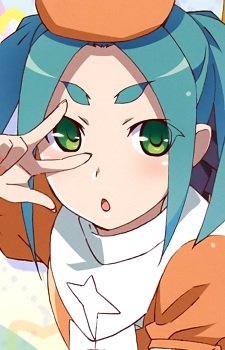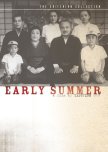The weight of family expectations, oh how heavy.
Although the three Ozu films {Late Spring, Early Summer, and Tokyo Story} are not connected in story, we see many of the same actors, and the female leads -all named Noriko - are played by Setsuko Hara. Across the three films, we experience similar family and societal conflicts and a consistent visual style, film pace, and sleepy music. There's a familiarity and continuity despite all three films being distinctly different stories. The films were made in in close chronological proximity - 1949, 1951, 1953. They're appropriately considered the "Noriko Trilogy" for that connectedness we feel when watching the trio of films.
The overall pace of this film is andante (moderately slow). So when there are scenes of anger or lightning quick decisions, we feel those scenes powerfully. Noriko's spontaneous decision to accept an impromptu marriage proposal is profound, shocking, confusing. Can this compliant daughter really act in such an individualistic way is what we wonder. But let it sink in a bit more, and it's all too obvious that the decision makes sense. We're given clues about the 'cost' of social obedience. Noriko's unkind brother and forlorn sister-in-law are moving along with their arranged marriage as puppets in a play. Noriko has enough experience with the type of man she doesn't trust; her brother is unkind and controlling; her boss is flirty; her suitor, Mr. Manabe, sends a private investigator to research her - wouldn't we feel a bit slimy after that? The filmmaker teases us by not even showing us what Mr. Manabe looks like; who cares if he's rich and good looking? Noriko's selection of Yabe is somewhat by process of elimination. She even argues that she doesn't 'love' him and instead 'trusts' him. He's the one to accept her individuality, the one she can lean on for support rather than take instructions from.
Noriko's independent decision, without consulting family - or even the groom! - is symbolic of a change or breakdown in the social order. Post WWII, Japan was grappling with many societal changes. Even the films that Ozu made were subject to intense censorship by American authorities. It's even comedic that Ozu chose a young woman making a choice for themselves as the symbol for social order breakdown; how dare a woman do that! I suspect Ozu's sympathies lay with Noriko, with individuals, and felt it was important to highlight individuals' livelihoods. When people are lumped into groups, we may come away with dangerous biases and generalizations, not only beliefs about others but also beliefs directed inwardly. Certainly, many Japanese did not want to fight in the wars, but were forced due to the social order; it was not acceptable to go against the rise in nationalism. Ozu, it seems, welcomes this social order breakdown. Yet, in that breakdown, there are things to lament, things that are lost. Noriko will move away from her family; her parents will move away as well to live with their elderly uncle. Like a wistful wind, the family is dispersed to far places in Japan.
Many of the actors in the Noriko films play different characters, roles, with wide ranging temperament. Chishu Ryu is a gentle, middle-aged father in Late Spring, a brusque and dominant elderly brother in Early Summer, and a resigned grandfather in Tokyo story. It's in watching his range in all three films where we fully understand the actor's skill, and long-lasting collaborating with Ozu (he appears in 52 of 54 Ozu films and featured in over 160 films and 70 television productions). Chishu's forceful manner in Early summer is quite enjoyable because of the contrast to other roles. It's a breath of fresh to see him in something other than a docile, fatherly figure. Setsuko Hara, on the other hand, maintains a continuity in character and affect. There's a stubborn purity to Noriko; when her purity survives, it is satisfying and comforting, but when it is broken, it is heartbreaking.
What exactly did Noriko represent to Ozu, Japan, and to the broader film audience of the of 1940s and 50? What does Noriko mean to us now in 2023? This is, in part, the beauty of the Noriko films, that it elicits so much reflection at a broad, universal level.
A loaf of bread loses its dignity in this film.
The overall pace of this film is andante (moderately slow). So when there are scenes of anger or lightning quick decisions, we feel those scenes powerfully. Noriko's spontaneous decision to accept an impromptu marriage proposal is profound, shocking, confusing. Can this compliant daughter really act in such an individualistic way is what we wonder. But let it sink in a bit more, and it's all too obvious that the decision makes sense. We're given clues about the 'cost' of social obedience. Noriko's unkind brother and forlorn sister-in-law are moving along with their arranged marriage as puppets in a play. Noriko has enough experience with the type of man she doesn't trust; her brother is unkind and controlling; her boss is flirty; her suitor, Mr. Manabe, sends a private investigator to research her - wouldn't we feel a bit slimy after that? The filmmaker teases us by not even showing us what Mr. Manabe looks like; who cares if he's rich and good looking? Noriko's selection of Yabe is somewhat by process of elimination. She even argues that she doesn't 'love' him and instead 'trusts' him. He's the one to accept her individuality, the one she can lean on for support rather than take instructions from.
Noriko's independent decision, without consulting family - or even the groom! - is symbolic of a change or breakdown in the social order. Post WWII, Japan was grappling with many societal changes. Even the films that Ozu made were subject to intense censorship by American authorities. It's even comedic that Ozu chose a young woman making a choice for themselves as the symbol for social order breakdown; how dare a woman do that! I suspect Ozu's sympathies lay with Noriko, with individuals, and felt it was important to highlight individuals' livelihoods. When people are lumped into groups, we may come away with dangerous biases and generalizations, not only beliefs about others but also beliefs directed inwardly. Certainly, many Japanese did not want to fight in the wars, but were forced due to the social order; it was not acceptable to go against the rise in nationalism. Ozu, it seems, welcomes this social order breakdown. Yet, in that breakdown, there are things to lament, things that are lost. Noriko will move away from her family; her parents will move away as well to live with their elderly uncle. Like a wistful wind, the family is dispersed to far places in Japan.
Many of the actors in the Noriko films play different characters, roles, with wide ranging temperament. Chishu Ryu is a gentle, middle-aged father in Late Spring, a brusque and dominant elderly brother in Early Summer, and a resigned grandfather in Tokyo story. It's in watching his range in all three films where we fully understand the actor's skill, and long-lasting collaborating with Ozu (he appears in 52 of 54 Ozu films and featured in over 160 films and 70 television productions). Chishu's forceful manner in Early summer is quite enjoyable because of the contrast to other roles. It's a breath of fresh to see him in something other than a docile, fatherly figure. Setsuko Hara, on the other hand, maintains a continuity in character and affect. There's a stubborn purity to Noriko; when her purity survives, it is satisfying and comforting, but when it is broken, it is heartbreaking.
What exactly did Noriko represent to Ozu, Japan, and to the broader film audience of the of 1940s and 50? What does Noriko mean to us now in 2023? This is, in part, the beauty of the Noriko films, that it elicits so much reflection at a broad, universal level.
A loaf of bread loses its dignity in this film.
Was this review helpful to you?







